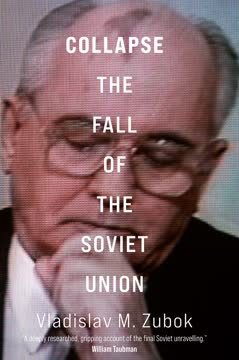Key Takeaways
1. Jewish Identity: A Complex Tapestry
Integration ‘with the norms of the society in which the individual will play a role’ posed no great problem to the ghetto Jew; the norms and values of the limited society of which he felt himself a part – namely, Jewish society – did not conflict seriously with the norms and values he had acquired from the family that nurtured him.
Defining Jewishness. Jewish identity is multifaceted, encompassing race, ethnicity, religion, and culture. Unlike simple categories, it's a dynamic mix shaped by history, personal experiences, and community. The question of "Who is a Jew?" has evolved over time, influenced by factors like the Enlightenment, anti-Semitism, and the rise of the State of Israel.
Historical Perspectives. In medieval Christendom, Jews were defined as a "special people" set apart by their religion, often facing discrimination and persecution. The rise of racial anti-Semitism in the modern era further complicated Jewish identity, leading to the Nazi's attempt to exterminate the "Jewish race." Today, Jewish identity is a matter of individual choice and interpretation, with diverse expressions ranging from religious observance to cultural affiliation.
Contemporary Challenges. Modernity has brought both opportunities and challenges to Jewish identity. The Enlightenment ideals of reason and universalism have eroded traditional communal authority, while anti-Semitism has led some Jews to seek assimilation or conceal their Jewishness. The establishment of the State of Israel has provided a focal point for Jewish nationalism, but also created new tensions between religious and secular Jews.
2. The Parting of Ways: Judaism and Christianity
If you had asked Jesus or any or his disciples what religion they were, they would have replied ‘Jewish’.
Shared Roots. Judaism and Christianity share common roots in the Hebrew scriptures and a belief in one God. Jesus and his early followers were Jews who observed Jewish law and customs. The separation between Judaism and Christianity was a gradual process that unfolded over several decades in the first century.
Diverging Paths. Disagreements over the interpretation of Jewish law, the role of Jesus as the Messiah, and the inclusion of Gentiles in the community of believers led to increasing tensions between Jews and Christians. The destruction of the Jerusalem Temple in 70 CE further hardened the division, as Christians interpreted this event as God's rejection of the Jews.
Defining Differences. After 70 CE, both Jews and Christians embarked on a process of self-definition, developing distinct doctrines, practices, and communities. Christians emphasized the divinity of Jesus and the concept of the Trinity, while Jews focused on the observance of mitzvot (commandments) and the study of Torah. The legacy of mistrust and mutual animosity between Jews and Christians has persisted for centuries, but recent interfaith dialogue has opened up avenues for reconciliation and understanding.
3. Rabbinic Judaism: A Tradition Forged in Dialogue
We must remind ourselves how the permanence of Israel is accompanied by a continuous spiritual fecundity, in the rabbinical period, in the Middle Ages and in modern times, taking its start from a patrimony which we long shared.
The Rise of the Rabbis. Rabbinic Judaism emerged after the destruction of the Second Temple in 70 CE, as the rabbis stepped in to provide religious and legal guidance to the Jewish community. The rabbis developed a system of interpreting and applying Jewish law based on the Hebrew scriptures and an oral tradition known as the Talmud. Rabbinic Judaism became the dominant form of Judaism for centuries, shaping Jewish life and thought in diverse communities around the world.
Key Figures. Judah ha-Nasi, the editor of the Mishna, and the Stamaim, the anonymous editors of the Talmud, were instrumental in shaping rabbinic Judaism. Saadia Gaon, Rashi, Maimonides, and other medieval scholars made significant contributions to Jewish philosophy, law, and literature. Kabbalists like Abraham Abulafia explored the mystical dimensions of Judaism, while figures like Graçia Nasi worked to alleviate the suffering of Jews facing persecution.
Enduring Legacy. Rabbinic Judaism has provided a framework for Jewish life and thought for centuries, offering guidance on everything from religious ritual to ethical conduct. Despite the challenges of modernity, rabbinic Judaism continues to be a source of inspiration and meaning for many Jews today. The tradition emphasizes the importance of study, dialogue, and interpretation in understanding and applying Jewish law to contemporary issues.
4. The Jewish Calendar: A Dance with Time and Nature
And you shall rejoice on your festivals; present yourself in the ‘chosen place’ (Jerusalem) bearing your ‘gift’ for God.
Lunar and Solar Harmony. The Jewish calendar is a lunisolar calendar, harmonizing the cycles of the moon and the sun. Months are based on the lunar cycle, while years are adjusted to align with the solar cycle, ensuring that festivals occur in their appropriate seasons. This intricate system reflects a deep connection to nature and the rhythms of life.
Festivals and Meaning. The Jewish calendar is punctuated by a series of festivals that commemorate historical events, celebrate agricultural cycles, and provide opportunities for spiritual reflection. The Pilgrim festivals of Passover, Shavuot, and Sukkot are joyous occasions that recall the Exodus from Egypt, the giving of the Torah, and the wandering in the wilderness. The Days of Awe, Rosh Hashanah and Yom Kippur, are solemn periods of repentance and self-reflection.
Sabbath Observance. The Sabbath, or Shabbat, is a weekly day of rest and spiritual renewal that begins at sunset on Friday and ends at nightfall on Saturday. It is a time to disconnect from the demands of daily life and reconnect with family, community, and God. The Sabbath is marked by special prayers, meals, and customs that create a sense of peace and harmony in the Jewish home.
5. The Spiritual Heart of Judaism: Prayer, Learning, and Action
You shall be holy, for I the Lord am holy.
Holiness in Everyday Life. Jewish spirituality is not confined to formal religious practices but permeates all aspects of life. The pursuit of holiness involves ethical conduct, social justice, and acts of loving-kindness. Prayer, learning, and teshuva (repentance) are essential components of Jewish spiritual life.
The Power of Prayer. Prayer is a means of connecting with God, expressing gratitude, seeking guidance, and petitioning for needs. Jewish prayer encompasses a range of forms, from spontaneous personal prayers to structured communal services. Kavvana (intention) is essential for meaningful prayer, requiring inner focus and awareness of God's presence.
The Value of Learning. Torah study is a central spiritual practice in Judaism, offering opportunities for intellectual and spiritual growth. Learning is not just for scholars but for all Jews, who are encouraged to engage with traditional texts and commentaries. The study of Torah is seen as a way of connecting with past generations and transmitting Jewish values to future generations.
6. The Jewish Home: A Sanctuary of Values
And you shall love the Lord your God with all your heart, with all your soul, and with all your strength. And these words, which I command you today, shall be upon your heart. And you shall teach them to your children, and speak of them, when you sit in your house, when you walk by the way, and when you lie down and when you rise.
A Foundation of Values. The Jewish home is a sanctuary of values, where Jewish traditions are observed, and Jewish identity is nurtured. Tzedaka (charity), mezuza (doorpost), kosher food, and family relationships are all important elements of creating a Jewish home. The home is a place of learning, celebration, and remembrance, where Jewish values are transmitted from one generation to the next.
Tzedakah and Social Justice. Tzedakah, often translated as charity, is a fundamental value in Judaism, emphasizing the importance of social justice and helping those in need. Setting aside a portion of one's income for charitable purposes is a way of living out this value. The Jewish home is a base for a way of life guided by tzedaka, encompassing not only financial giving but also acts of kindness, hospitality, and concern for the welfare of others.
Rituals and Observances. The Jewish home is marked by a variety of rituals and observances that connect family members to Jewish tradition. The mezuza, a small parchment containing verses from the Torah, is affixed to the doorposts of the home as a reminder of God's presence. The observance of kashrut (dietary laws) creates a sense of mindfulness and connection to Jewish history. The celebration of Shabbat and festivals brings joy and meaning to family life.
7. Modern Judaism: Navigating a World of Change
The spirit of Judaism is freedom in doctrine and conformity in action.
Denominational Diversity. Modern Judaism encompasses a range of denominations, including Orthodox, Reform, Conservative, and Reconstructionist, each with its own approach to Jewish law, theology, and practice. These denominations emerged in response to the challenges of modernity, as Jews sought to reconcile traditional beliefs with contemporary values. The rise of Reform Judaism in the 19th century challenged traditional norms and led to the development of Orthodox Judaism as a distinct movement.
The Impact of the Holocaust. The Holocaust, or Shoah, was a watershed event in Jewish history, raising profound questions about God, humanity, and the nature of evil. Holocaust theology emerged as a distinct genre, seeking to grapple with the theological implications of the Shoah and to find meaning in the face of unimaginable suffering. Jewish thinkers have explored themes of divine hiddenness, theodicy, and the importance of remembrance in the aftermath of the Holocaust.
The State of Israel. The establishment of the State of Israel in 1948 was a momentous event in Jewish history, fulfilling a centuries-old dream of returning to the land of Israel. The State of Israel has become a focal point for Jewish identity and a source of pride for Jews around the world. However, the establishment of Israel has also created new challenges, including the ongoing conflict with Palestinians and the need to balance Jewish values with democratic principles.
8. Halakha: Eternal Law in a Changing World
In the heart of the night of terror … a night of Hiddenness … of Doubts and Apostasy … came a knock on the door, the knock of the beloved … Seven great reversals in Jewish life, seven miracles, commenced – political, military, cultural, theological, life-value, citizenship, and the new fertility of the land of Israel.
Applying Tradition to Modernity. Halakha, or Jewish law, provides a framework for Jewish life and thought, offering guidance on a wide range of issues. In the modern era, halakhic authorities have grappled with new challenges posed by scientific advances, medical technology, and changing social norms. The process of applying halakha to contemporary issues involves interpreting traditional sources, considering historical context, and engaging in ethical reasoning.
Medical Ethics. Medical ethics has become a particularly important area of halakhic inquiry, as new technologies raise complex questions about abortion, artificial insemination, euthanasia, and surrogate motherhood. Halakhic authorities have drawn on traditional sources to address these issues, balancing the values of preserving life, alleviating suffering, and respecting human dignity. The debate over medical ethics highlights the ongoing tension between tradition and modernity in Jewish thought.
Contemporary Challenges. The application of halakha to contemporary issues is not without controversy, as different denominations and individual Jews hold varying views on the interpretation and application of Jewish law. The ongoing dialogue and debate over halakha reflect the dynamic nature of Jewish tradition and its ability to adapt to changing times. The process of halakhic decision-making involves careful consideration of sources, precedents, and ethical principles, as well as a commitment to preserving the integrity of Jewish law while addressing the needs of the modern world.
Last updated:
Review Summary
Judaism: A Very Short Introduction receives mixed reviews. Readers appreciate its concise overview of Jewish history, traditions, and contemporary issues, praising its accessibility and informative content. However, some criticize its organization, outdated language, and perceived bias. The book is noted for its academic approach, which some find helpful and others too detached. Critics point out its focus on Ashkenazi Judaism and lack of coverage on certain topics. Overall, it's seen as a solid introduction, albeit with limitations, encouraging further reading on the subject.
Very Short Introductions Series Series
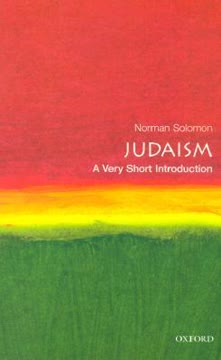
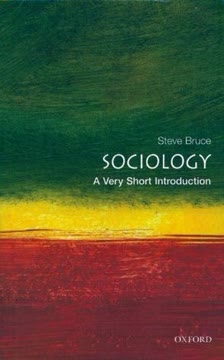
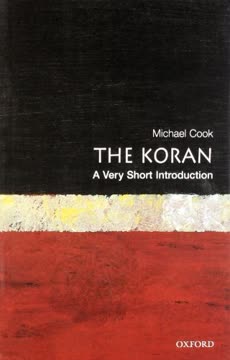
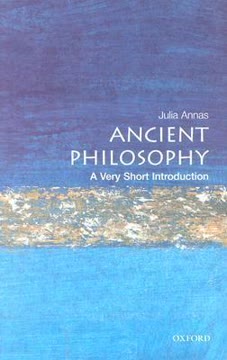

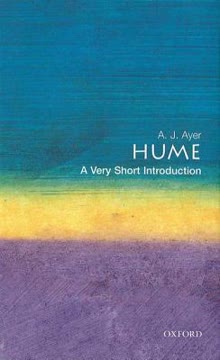

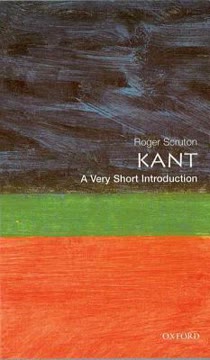
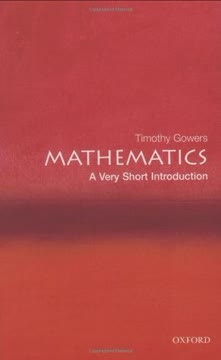
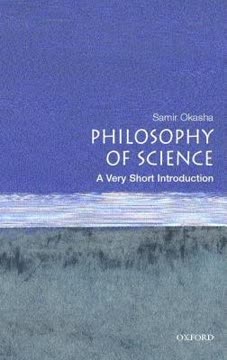
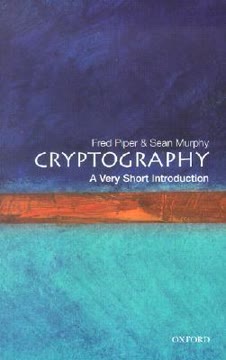
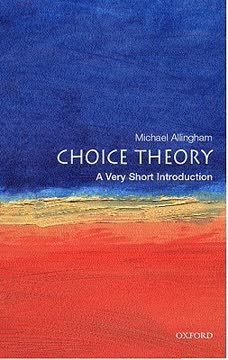
Similar Books
Download PDF
Download EPUB
.epub digital book format is ideal for reading ebooks on phones, tablets, and e-readers.



